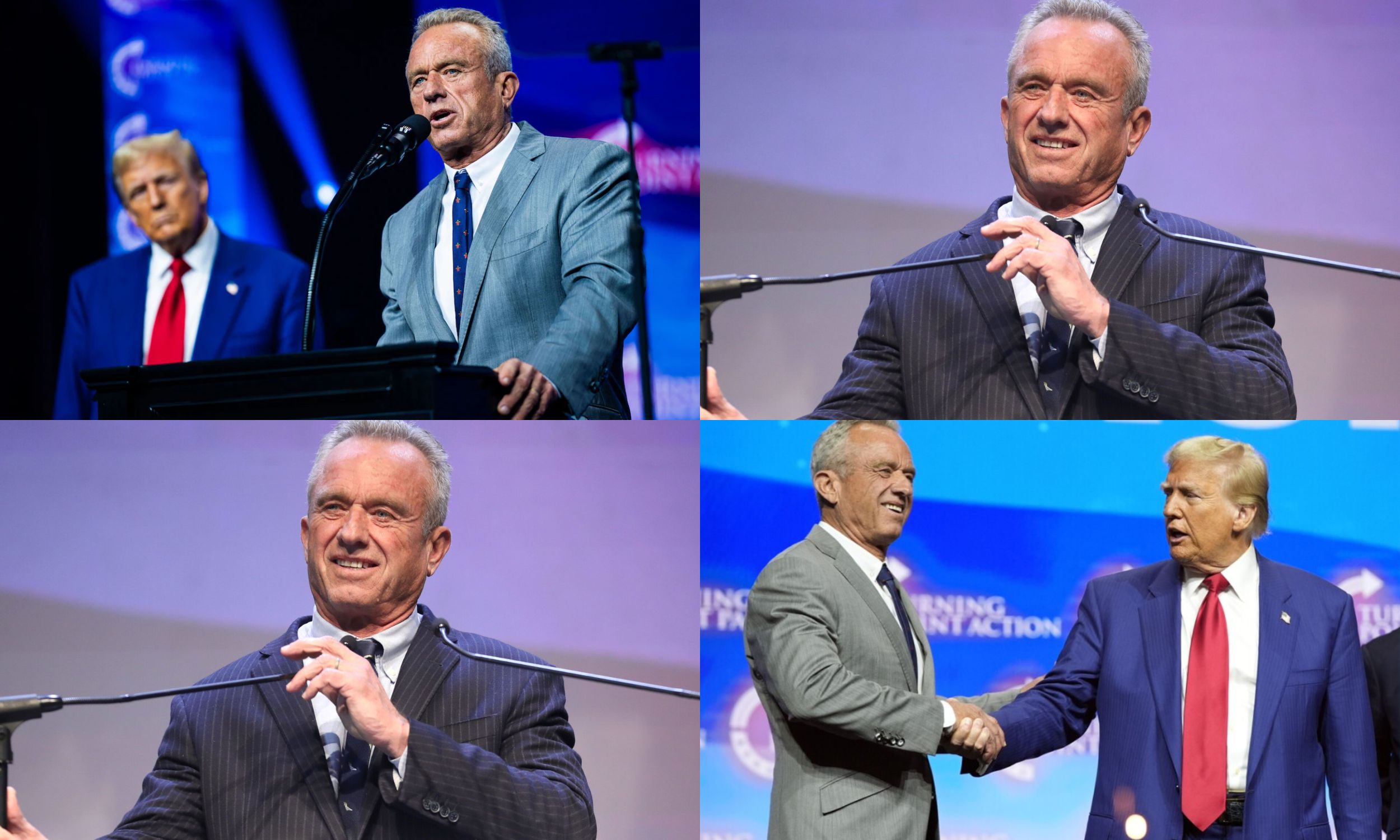Concerns are rising regarding the impact of President-elect Trump’s nomination of Robert F. Kennedy for the position of Health and Human Services secretary on vaccination rates among school children, which have already been declining.
Since the onset of the COVID-19 pandemic, there has been a noticeable decrease in childhood vaccinations as anti-vaccine sentiments surged alongside criticism of COVID-19 vaccines. Public health advocates view vaccinations as a crucial defense against diseases and fear that Kennedy’s confirmation would further amplify skepticism.
Georges Benjamin, executive director of the American Public Health Association, stated, “We believe Mr. Kennedy is an unsuitable candidate for the Secretary of Health and Human Services because his history has contributed to harm among the nation’s children, which disqualifies him from holding any prominent role in health.” Trump has indicated that he might consider reducing certain childhood vaccination programs.

When asked about potential cuts to vaccination programs, Trump remarked to Time magazine, “We’re going to have a big discussion. The autism rate has reached unprecedented levels. If you observe current trends, something must be causing it.”
Although there has been a rise in autism diagnoses, claims linking vaccines to autism have been widely discredited by the medical community. Experts have pointed to other factors influencing the increase in autism diagnoses, such as revised diagnostic criteria.
Kennedy has long held skepticism toward vaccines, famously asserting in 2023 that “there’s no vaccine that is safe and effective.” He also founded an anti-vaccine organization called the Children’s Health Defense. Public health organizations warn that a decline in vaccinations poses a risk to school children.
Benjamin emphasized the importance of vaccinations, stating, “Children are congregating in settings like schools and daycares for the first time, making them vulnerable to diseases that spread easily in close proximity.”
He added, “Schools represent a high-risk environment for disease transmission. Vaccination is essential for protecting the public, both individually and collectively, which is why we mandate vaccinations for schoolchildren.”
Childhood vaccination programs were established in the U.S. during the 1970s in response to outbreaks in educational institutions. By the end of the 20th century, nearly all states had implemented vaccine mandates for K-12 students.
Paul Offit, director of the Vaccine Education Center and an attending physician at Children’s Hospital of Philadelphia, warned, “Should school vaccination mandates be abolished, we would likely witness a resurgence of highly contagious diseases commonly transmitted in schools.”
He further noted, “I’m concerned that the COVID-19 pandemic has led many to perceive government actions as overreach, resulting in resistance, particularly toward school mandates.”
During the 2023-24 school year, vaccination rates among kindergarteners dropped to below 93 percent for all state-required vaccines, a decline from 95 percent during the 2019-20 school year, according to data from the Centers for Disease Control and Prevention.
Several factors contribute to the downward trend in vaccinations since the COVID-19 pandemic, including missed routine checkups and an increase in vaccine hesitancy.
Michael Cappello, a professor of pediatric infectious diseases at the Yale School of Public Health, commented on the situation: “Misinformation has led to a tragic erosion of trust in public health expertise, compounding the challenges presented by the pandemic.”
He stressed the importance of having leaders in key positions, particularly in Health and Human Services and the Centers for Disease Control, advocating for routine childhood vaccinations instead of skepticism.
This school year also saw an increase in exemption rates, reaching 3.3 percent, up from 2.5 percent in the 2019-20 academic year, with most exemptions being nonmedical. In the previous school year, 14 states reported exemption rates exceeding 5 percent, a rise from just eight states prior to the pandemic.
Amy Pisani, CEO of Vaccinate Your Family, a nonpartisan organization that collaborates with both Democratic and Republican administrations, emphasized, “It is critical for schools to enforce existing vaccination requirements. If they identify lower vaccination rates, they must address this issue seriously.”

Despite apprehension regarding mixed messages from the federal government and health community under Trump, experts emphasize that local mandates and support are crucial for fostering confidence in vaccinations.
Cappello noted, “Vaccination practices are managed at the local level, with laws established by local authorities rather than the federal government. While the federal government provides guidelines, vaccination requirements ultimately fall under local jurisdiction.”
He added, “As long as schools collaborate with local health departments to promote vaccination requirements and ensure compliance among students, we can avoid the predicted outbreaks.” Some educational institutions are committed to following state laws while also educating parents on the benefits of vaccinations.
Bebi Davis, principal of Princess Victoria Kaiulani Elementary School in Hawaii, remarked, “Regardless of federal recommendations, parents will make their own informed decisions.”
She elaborated, “Personally, I consult my physician to determine whether I should receive a vaccination, as individual health challenges vary.” Davis also acknowledged that some individuals may not be able to get vaccinated due to medical or religious constraints.
Exemptions from vaccine mandates typically fall under three categories: medical, religious, and personal reasons. All states permit medical exemptions for conditions like weakened immune systems or vaccine allergies.
Most states allow for religious exemptions, often requiring proof of affiliation with a religious organization. However, only a little over a dozen states permit personal belief exemptions concerning vaccinations.
In response to Trump’s statements about potentially scaling back vaccinations, Offit posed a critical question: “Which diseases would you like to see return?” He remarked, “Public health is essentially a local matter, and it is the state and local health departments, as well as school nurses, who play a pivotal role.” Offit concluded, “Everyone involved in safeguarding children’s health must vocally advocate for the necessity of vaccinations, which provide essential protection.”


